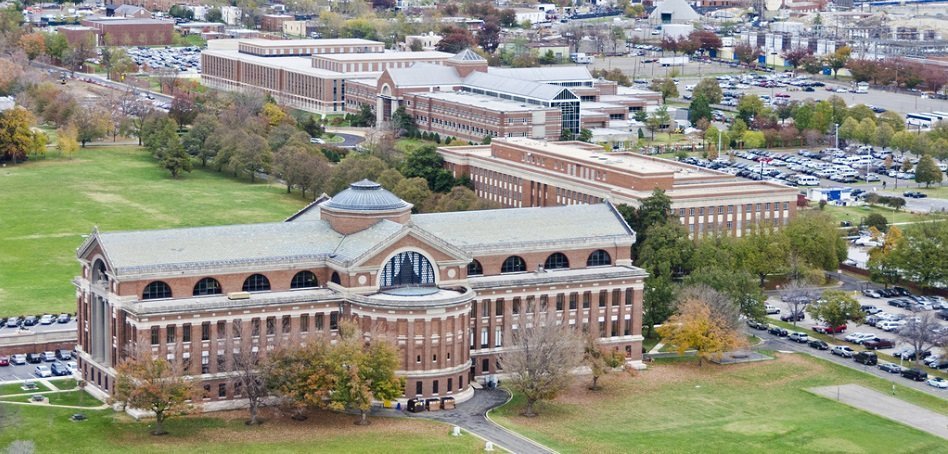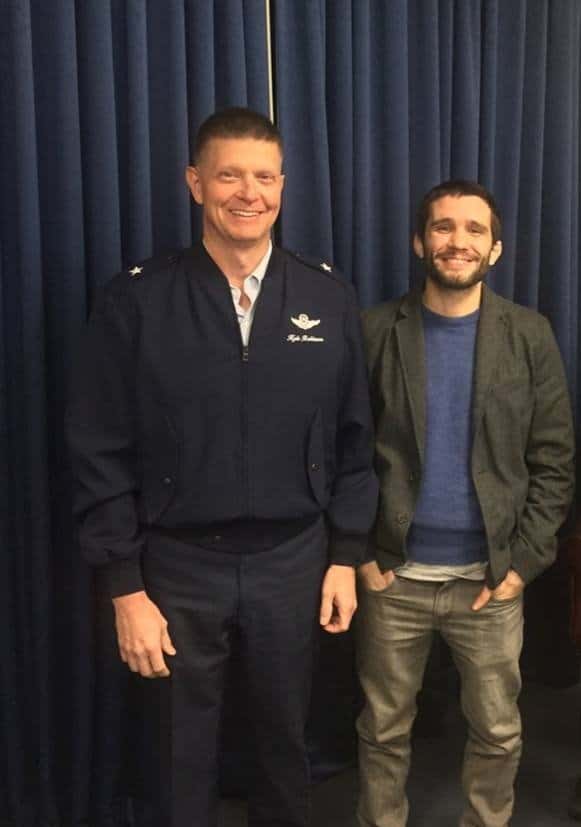
Event: A guest appearance at National Defense University
Date: October 24, 2018
Team Member: Daniel Faggella, Emerj CEO and Founder
What Happened
Through a variety of presentations for business and government personnel, I was put in touch with some of the leadership at the Defense Innovation Unit at the Department of Defense, which is essentially an arm of the Defense Advanced Research Projects Agency (DARPA). In talking to those folks, I was introduced to a professor at the National Defense University in Washington DC who was very interested in how to bake artificial intelligence use cases and understanding into their curriculum in order to help train military leaders on how to fruitfully leverage these technologies.

Most people at the National Defense University are between 35 and 55; they’re often colonels or generals who are there to be educated to the next highest level in very specialized military domains. The people I was speaking to were primarily people who teach at the university. We even had a general in the room. The presentation itself was rather free-form.
I sat down with some critical points in mind about what military leaders should understand, but I didn’t talk about anything technical. I talked about the conceptual understandings that are going to be critical for military leaders to deal with defense contractors and to understand application areas that might be fruitful for them.
They peppered me with questions about acquiring talent, the phases of AI adoption, and why it’s so challenging to adopt AI in large, existing institutions like the government. I also really laid out a framework for how non-technical military leaders can still understand what problems AI is a good fit for and what AI is capable of.
One person there was with the Army, and he was interested in AI applications for tanks and Humvees. The general who was in the room was with the Air Force, and he had questions more specific to what the Air Force is up to.
I got to explore the National War College, which was belt during Theodore Roosevelt’s era. There’s a special room in there where they conduct a lot of the ceremonies for granting high-level military rank, so that was fun to look around.
What We Learned
- The things that high-level military leaders want to know about AI are the same things that high-level business executives want to know. They ask a lot of the same questions, namely, “what’s possible,” “what’s working,” and, “where can I apply AI?” They want to know what has real traction and what is already making an impact in the real world–not what’s experimental or still circling around academia. Of course, the military’s goals are somewhat different from those of businesses, but like in business, there is always an objective that it’s looking to achieve with or without AI.
- The military is very interested in the international stage of AI. It wants to know the kinds of capabilities that are being developed in the EU, in China, in Israel, as compared to in the United States. In addition, it wants to know how talent density is being allocated amongst those powers. I didn’t get to speak as much on the China-US dynamic as much as I would have liked to during this particular presentation, but it was something of great interest to the people in the room in terms of big-picture international affairs. International dynamics as they relate to AI is also what I’m most passionate about.
Header Image Credit: Pcssr







